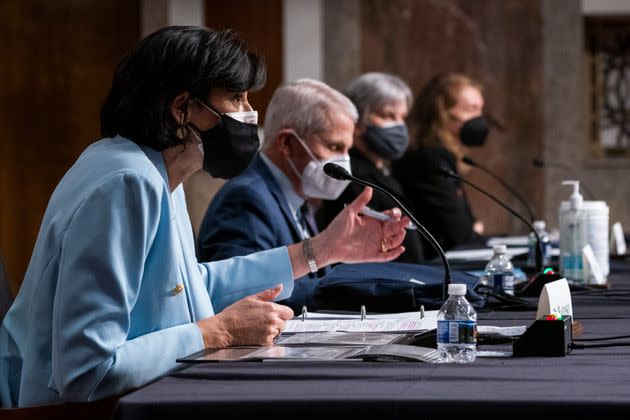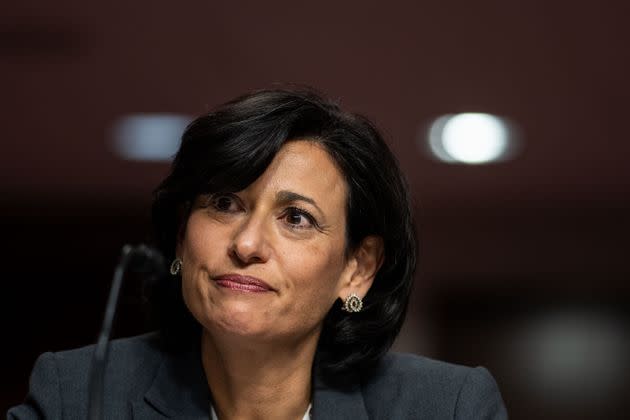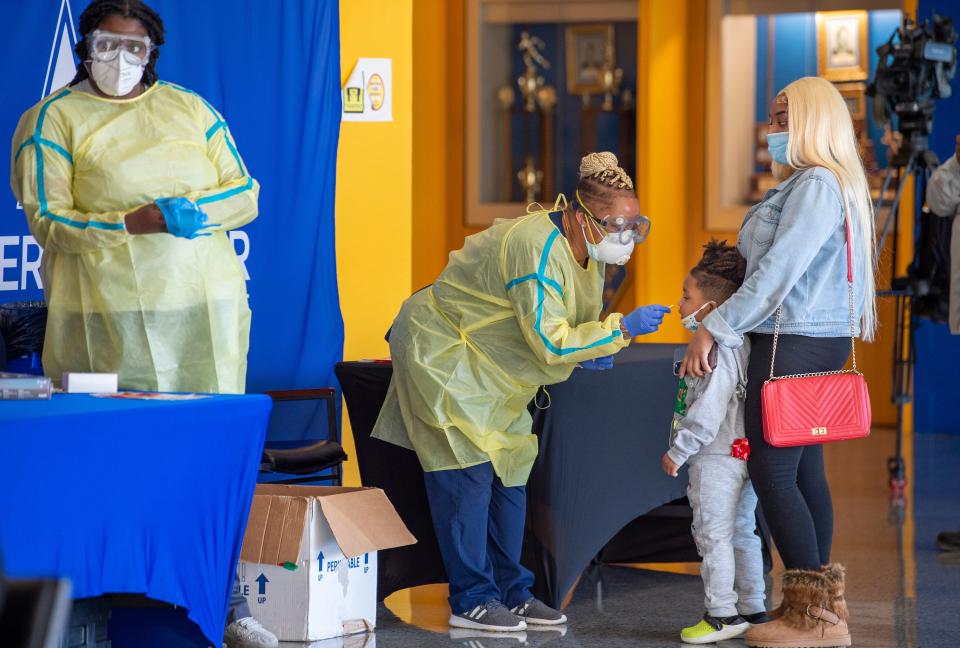CDC Director Vows To Improve COVID-19 Communication After Backlash
- Oops!Something went wrong.Please try again later.
The director of the Centers for Disease Control and Prevention, responding to criticism of the agency’s COVID-19 recommendations as confusing or worse, acknowledged she hasn’t always been clear in her public guidance.
Dr. Rochelle Walensky said she believes Americans need to know that the pandemic is always changing, and along with it the CDC’s recommendations.
“I think what I have not conveyed is the uncertainty in a lot of these situations,” Walensky said in an interview with The Wall Street Journal published Monday in which she committed to communicating CDC policy more clearly.
The CDC has been the target of pandemic criticism even before Walensky took over one year ago this month. Critics have assailed the agency for such things as failing to immediately recommend face masks, being late to recognize that the virus is airborne, telling people who are fully vaccinated they can stop wearing masks indoors and then telling them they have to wear masks indoors.
Lately, the criticism intensified when the CDC advised people who test positive for the virus but have no symptoms they can leave isolation after just five days, half of the previous recommendation. The agency also dropped its recommendation for a negative test before leaving isolation.
Some health experts called the new guidance reckless and confusing, and questioned whether the CDC was shortchanging public health as a way to ease a widespread testing shortage.

“A dearth of tests at the moment does not justify omitting a testing requirement to exit a now shortened isolation,” the American Medical Association declared.
“In terms of the communication and the trust in the CDC, it feels like we have gone backwards,” Leana Wen, a former Baltimore health commissioner, told NBC News.
Walensky, addressing such pushback, told the Journal that rapid tests aren’t always accurate and therefore aren’t intended for testing people who want to end their isolation. She added that repeated testing over several days gives a better barometer of infectiousness.
“If you’re positive — you should probably stay at home,” she said. “But a negative — that doesn’t mean you’re not contagious. And we needed to be very clear about that.”
Dr. Henry Walke, director of the CDC’s Division of Preparedness and Emerging Infections, backed that up, telling reporters at a recent news briefing that tests are authorized by the Food and Drug Administration to diagnose COVID-19 and not to “evaluate the duration of infectiousness.”
Dr. Thomas Frieden, who led the CDC under President Barack Obama, told The New York Times in an interview published Monday that he thinks the CDC’s isolation recommendations are “basically correct.” The problem, he said, was “they were not explained.”
“That’s a problem. In past outbreaks, the CDC was regularly briefing, explaining the science and explaining how the guidance might apply,” Frieden told NBC News.
Dr. Richard E. Besser, who was the CDC’s interim chief during the H1N1 influenza virus outbreak of 2009, told the Times he’d like to know more about policies and economics that lead to CDC recommendations.
“I think we need some more clarity,” Besser said.
Walensky told the Journal she’s now being coached by a media consultant and has begun holding additional media briefings separate from those with the White House, allowing additional time with health reporters. In her first briefing on Jan. 7, she detailed the reasoning for the CDC’s relaxed isolation guidelines and took questions with other CDC experts.
“We had heard clearly over the last week that there was interest in hearing from us independently. And so that was the reason for today,” Walensky told reporters.

This article originally appeared on HuffPost and has been updated.





